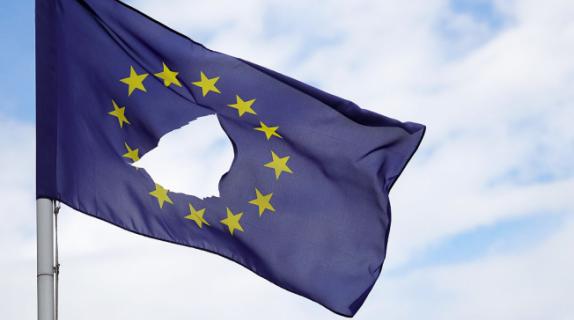Not 24 hours after the U.K. voted to exit the European Union and Prime Minister David Cameron resigned, those in U.K. TV and film industry were sounding the alarm.
“The decision to exit the European Union is a major blow to the U.K. film and TV industry,” said Michael Ryan, chairman of the Independent Film & Television Alliance in a statement. “This decision has just blown up our foundation — as of today, we no longer know how our relationships with co-producers, financiers and distributors will work, whether new taxes will be dropped on our activities in the rest of Europe or how production financing is going to be raised without any input from European funding agencies. The U.K. creative sector has been a strong and vibrant contributor to the economy — this is likely to be devastating for us.”
The British entertainment industry had been nearly unanimous in its opposition to Brexit, warning that departing would likely cut off British filmmakers from European subsidies and also threaten exports, reported The Hollywood Reporter. On Friday morning, many media stocks were sharply down and the Dow Jones Industrial Average had fallen by 650 points at one point, the worst day since 2011. The British pound hit a more than 30-year low.
The Creative Industries Federation (CIF), which represents British creative industries across all sectors, tried to put a positive spin on the decision.
“It will be vital for all sides to work together to ensure that the interests of our sector on issues including access to funding and talent are safeguarded as the U.K. forges its new relationship with Europe. The importance of British culture in representing our country to the world will be greater than ever,” said CIF CEO John Kampfner in a statement.
According to the CIF, the U.K.’s creative industries were worth $117 billion to the British economy in 2013-14, and Europe accounts for 57 percent of all of the British creative industries’ exports.
A study conducted before the vote by research group Enders Analysis predicts a post-Brexit recession that will cause a “hyper-cyclical decline in the advertising revenues of broadcasters and publishers” in the U.K.
In the U.S., President Obama issued a statement saying he “respects Britain’s decision to leave the European Union,” even though he campaigned against the move during a trip to London in April. Presumed Republican presidential nominee Donald Trump called it a “great thing” as he stepped off a plane en route to visiting his golf course in Scotland. Scotland in 2014 voted to remain a part of Great Britain, but now will likely vote again on whether to leave the U.K. and join the EU.
Reactions across the entertainment industry were mostly shock and upset.
Harvey Weinstein, who’s Weinstein Company just produced War and Peace with the BBC, told Deadline at the Cannes Lion Creativity Festival: “it could be very costly in the movie and TV industry in terms of content branding,” he said. “This is not about economics, this is about immigration. They don’t want Muslims in the country. These guys who voted, voted out of fear. It’s a huge mistake.”
“Very disappointed, but the electorate has spoken,” said Sir Martin Sorell of advertising giant WPP in a statement provided to Adweek. “The resulting uncertainty, which will be considerable, will obviously slow decision-making and deter activity. This is not good news, to say the least.”
READ MORE: The Hollywood Reporter, Deadline, Adweek
Tags:













































__twocolumncontent.jpg)











